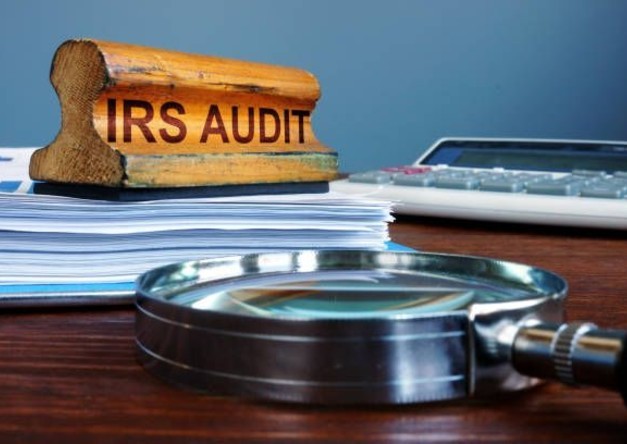IRS Audit Red Flags: Common Mistakes That Trigger Audits
By Davis Clarkson , May 20 2025

The possibility of being audited by the IRS causes even the most organized individuals to fear. Only a tiny portion of tax returns are reviewed by the IRS each year.
Still, there are several factors that can make it more likely you’ll be audited. If you keep these points in mind, you might prepare your tax forms with more care. This can help you escape possible scrutiny.
Today, you will learn some IRS audit red flags. We'll also help you understand how you can easily minimize the risk of being audited.
Why IRS Audits?
An IRS audit means that a taxpayer’s financial information is being reviewed. They're trying to check the truthfulness of incomes, the amount of deductions and credits. If the IRS spots unusual situations or differences in claims, these might increase the chances of a tax audit. The agency checks for proper compliance with taxes. This helps them lessen fraud and collect money that is still due.
IRS Audit Red Flags To Avoid
These are some IRS audit red flags to avoid:
Unreported Income
The simplest explanation for an IRS audit is not telling the truth about your entire income. This makes the IRS try to match the information from your forms with what is in your tax return.
According to tax experts, the IRS will often be sent copies of each of your tax forms as well as income distributions. They will ensure that the items on your return are the same as what you got. If they notice something is missing, they will automatically do a letter audit to check the system.
Most unreported income arises from earnings that you don't pay attention to. Maybe brokerage accounts you may not remember. Payments are made for some cash-based side hustles like tutoring.
If no income tax form was sent to you, you must report that pay anyway. If the information with the IRS doesn’t coincide with what you include on your tax return. It almost always leads to an IRS review.
High Income
A high income brings greater awareness from the IRS, even if everyone aims for more. It’s one of those IRS audit red flags. Over the last year, IRS figures suggest that the chances increase if you have more money. During the last 5 years, 1% or less of those under $200,000 had an audit. But over 4% of those earning more did. Over 1 million in income, the audit rate for individuals is closer to 12.5%.
Just like in personal taxes, a small percentage of businesses with little income were audited. A larger number with greater income was studied.
Two main factors explain why this is happening:
Generally, the greater a person’s income, the more likely they are to end up with a complex tax return. The IRS wants to obtain the best results possible from each audit it conducts. In simple words, they can recover more tax money by examining the rich.
Still, you shouldn’t set out to earn less than you could. Those in the higher income categories should be particularly careful. They should collect all necessary paperwork and follow tax regulations.
Business Expense Red Flags
Schedule C (Profit or Loss from Business) for the self-employed is often the form that draws IRS attention. Some self-employed people claim more deductions than they should. Others may leave some income off their returns, making these returns high priorities for IRS attention.
A sign that something is wrong may include claims for vehicle use. This is mainly those who claim the car is only used for business purposes. The IRS understands that it is unusual for someone to only use their car for business. This is especially if that person owns only one vehicle. Record every trip on a separate sheet and list each date in your calendar.
To get a home office deduction, the space used must be only for business. A multi-purpose room doesn’t meet the criteria. Check the regulations carefully before taking this deduction.
Taking Excessive Charitable Deductions
Claiming generous charitable donations can lead to suspicion. Here’s another mistakes on taxes people make. It may mean there is something unusual about your returns. The IRS collects information on normal charitable donations for each income level. Then, it questions tax returns that are far from these statistics.
If the value of your non-cash gift is $500 or more, discuss Form 8283 with your tax advisor. Lately, there has been an intense examination of conservation easements. Congress is not allowing charitable deductions for extreme cases.
For issues to be avoided, keep all documentation regarding charitable giving up to date. If possible, keep all receipts, letters and appraisals for your donations. Proper documentation ensures that you cannot be questioned about your charitable tax deductions.
Hobby Losses vs. Legitimate Business Losses
For tax purposes, it is important to distinguish a hobby from a business. You may be continuously losing money on what seems to be a hobby. Then, you have substantial income from other sources. If the IRS sees this, it draws their attention.
Your losses are only deductible if you were aiming to make a profit through your actions. The IRS believes you are running a genuine business if your activity profits in three successive years.
Other Considerations for Contractors
Employees working as contractors must be aware of audit issues that affect the categorization of workers. That includes payments to subcontractors and expenses. Remember to watch out for these warning signs if you hire contractors or subcontractors.
Someone may be wrongly labeled as an independent contractor instead of an employee. This may result in major penalties. Among the indicators the IRS reviews are how work is done. They also check who provides the equipment and how long the work continues. This is one of those mistakes on taxes that causes issues.
Not handing out 1099s with payments to your subcontractors can be an issue. This is when their pay is more than $600 a year. Keep in mind that the IRS receives the same forms. They review them based on what you have reported as income.
Contractors must pay special attention to handling the insurance certificates given by subcontractors. Doing without properly updated or active certificates might result in problems. This is mainly during workers’ compensation audits. Set a minimum level of insurance for subcontractors. Check regularly to see if they are complying.
On a Final Note
Generally, very few taxpayers are audited. Still, it's good to know these IRS audit red flags so you can feel more confident about your return. The key is to have all your necessary records and comply with the laws. It's better than fearing getting a legitimate deduction. Always take care not to make mistakes on taxes, and do them with complete honesty. This means your risk of an audit should go down even as you access all your tax benefits.
Ensure financial accuracy and avoid tax complications with our pay stubs tool. Our platform provides precise pay stubs. So, we make it easier to document income and stay audit-ready. Take control of your financial records today. Visit and simplify your tax preparations.
Frequently Asked Questions
Similar Articles
We’ve helped numerous individuals and businesses create professional documents! Create yours today!










